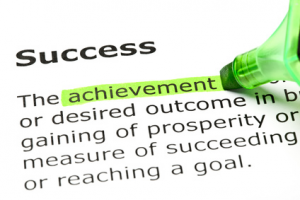Fear – it’s built into our DNA. It’s what kept our ancestors alive for centuries – and wakes entrepreneurs at 3 am! Scientists tell us that some fear is good. We’ve all had the sweaty palm experience before an important presentation that improves our performance but when does too much fear spook your business growth?
What spooks entrepreneurs? Anyone who has launched an enterprise, large or small, knows the trepidation of the start-up and the accompanying fear of failure. Nevertheless, did you know that established entrepreneurs experience fear, too? Although a record of accomplishment quells fears of failure, business growth and expansion can actually spark new fears of success.
Although we think we’re the only entrepreneur spooked by various aspects of the business, you may be surprised to learn you’re not alone. Entrepreneurs at all levels of success experience a wide-range of teeth-chattering fears. Some of the more common are not making payroll, not generating enough revenue to cover overhead, fear of looking stupid, making a fool of oneself, fear of rejection, fear over whether or not the business will actually succeed, fear of charging what the business needs to be profitable, not having the right education or experience…the list is endless.
When is fear good? As we know, some fear is good. It’s the pit in the stomach before a presentation or a critical sales call that helps us perform better. Fear is also a great teacher. Fear of the unknown prompts us to complete the essential research that addresses the missing information that ultimately enhances success. Fear prompts us to take action.
How does fear get in the way of success? Fear becomes a real showstopper when it triggers inaction or paralyses you from making decisions. Overwhelming fear can also stop creativity or prevents us from taking leveraged risks. It can set off procrastination. And, worst of all, fear makes entrepreneurs ‘play it safe’.
How do you overcome fear? Have you heard the well-known mantra “Feel the fear and do it anyway?” Even though you’ve tried to buy into that notion, you may not have had much luck overcoming your fears. Trust me when I tell you that you’re not alone! What is needed are practical tools that keep fears at bay and allow forward movement. Here are a few for your consideration:
- Create a plan of action that includes plan B.
- Develop a support team.
- Learn as you grow.
- Focus on your strengths.
- Design your goals around your personal values.
- Take small, measureable steps.
- Capitalize on your successes and actions that move you forward.
The most important tool for dealing with fear is to learn to reframe the perception of fear. Like Thomas Edison who invented the light bulb on his 10,000th attempt when asked by a young reporter how he felt about failing 999 times. As the story goes, Thomas Edison just smiled and replied, “Young man, I have not failed 999 times. I have simply found 999 ways how not to create a light bulb.”
What tools have you’ve discovered that prevent your business success from being spooked?
Related Blog Posts:
4 Steps to Reduce Information Overload & Raise Your Confidence
10 Things a Solopreneur Can Do Without
Getting Past Your Fears and Growing a Successful Business
Grow Your Business From the Inside Out
4 Things Entrepreneurs Can Learn from Howard Stern





 I would have written this blog yesterday – but I didn’t have “it” in me. I was mentally spent. It wasn’t because I hadn’t slept well the night before or put in an 18 hour day – I had reached my decision making capacity for the day and, like any overworked muscle, my brain was out of steam and needed to recuperate.
I would have written this blog yesterday – but I didn’t have “it” in me. I was mentally spent. It wasn’t because I hadn’t slept well the night before or put in an 18 hour day – I had reached my decision making capacity for the day and, like any overworked muscle, my brain was out of steam and needed to recuperate.



